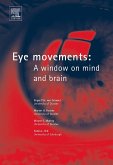Neuroethics is concerned with the wide array of ethical, legal and social issues that are raised in research and practice. The field has grown rapidly over the last five years, becoming an active interdisciplinary research area involving a much larger set of academic fields and professions, including law, developmental psychology, neuropsychiatry, and the military.
Neuroethics and Practice helps to define and foster this emerging area at the intersection of neuroethics and clinical neuroscience, which includes neurology, neurosurgery, psychiatry and their pediatric subspecialties, as well as neurorehabiliation, clinical neuropsychology, clinical bioethics, and the myriad other clinical specialties (including nursing and geriatrics) in which practitioners grapple with issues of mind and brain. Chatterjee and Farah have brought together leading neuroethicists working in clinically relevant areas to contribute chapters on an intellectually fascinating and clinically important set of neuroethical topics, involving brain enhancements, brain imaging, competence and responsibility, severe brain damage, and consequences of new neurotechnologies. Although this book will be of direct interest to clinicians, as the first edited volume to provide an overall comprehensive perspective on neurethics across disciplines, it is also a unique and useful resource for a wide range of other scholars and students interested in ethics and neuroscience.
Dieser Download kann aus rechtlichen Gründen nur mit Rechnungsadresse in A, B, BG, CY, CZ, D, DK, EW, E, FIN, F, GR, HR, H, IRL, I, LT, L, LR, M, NL, PL, P, R, S, SLO, SK ausgeliefert werden.









